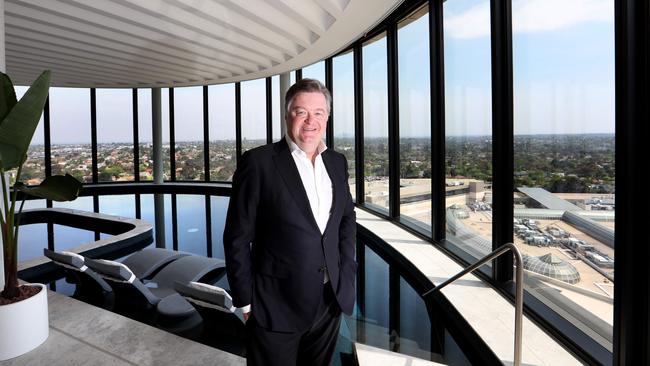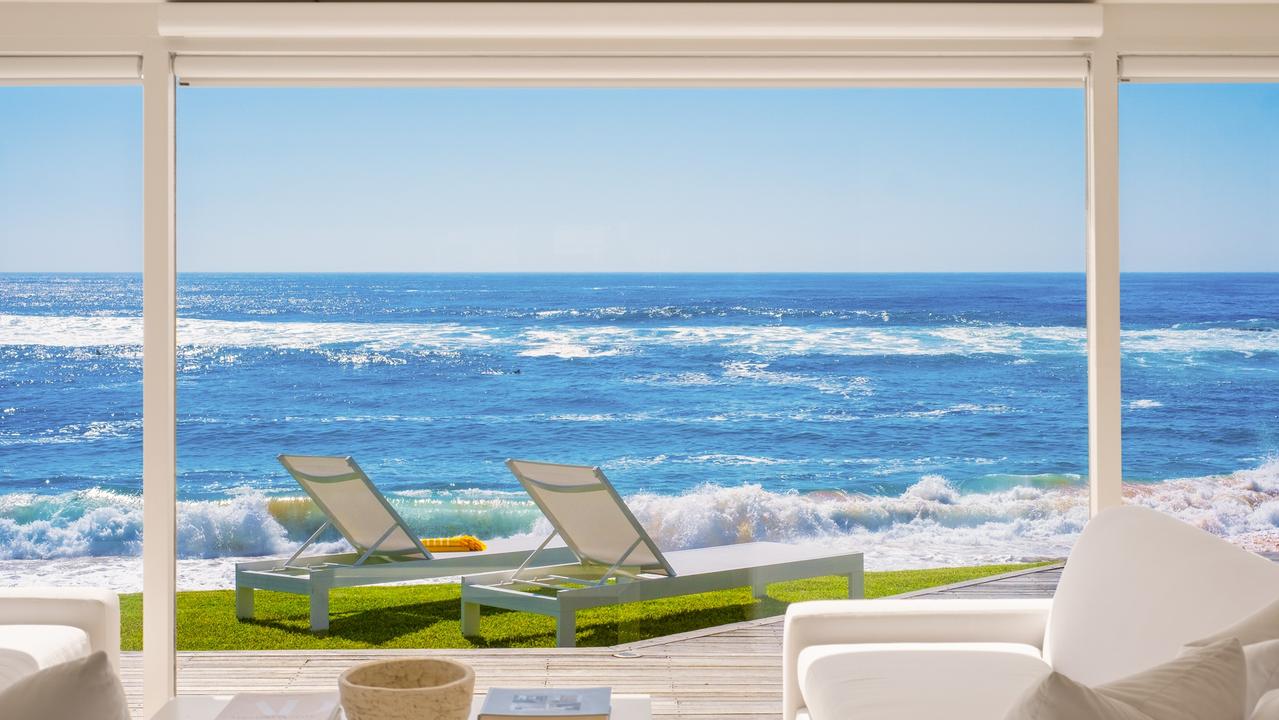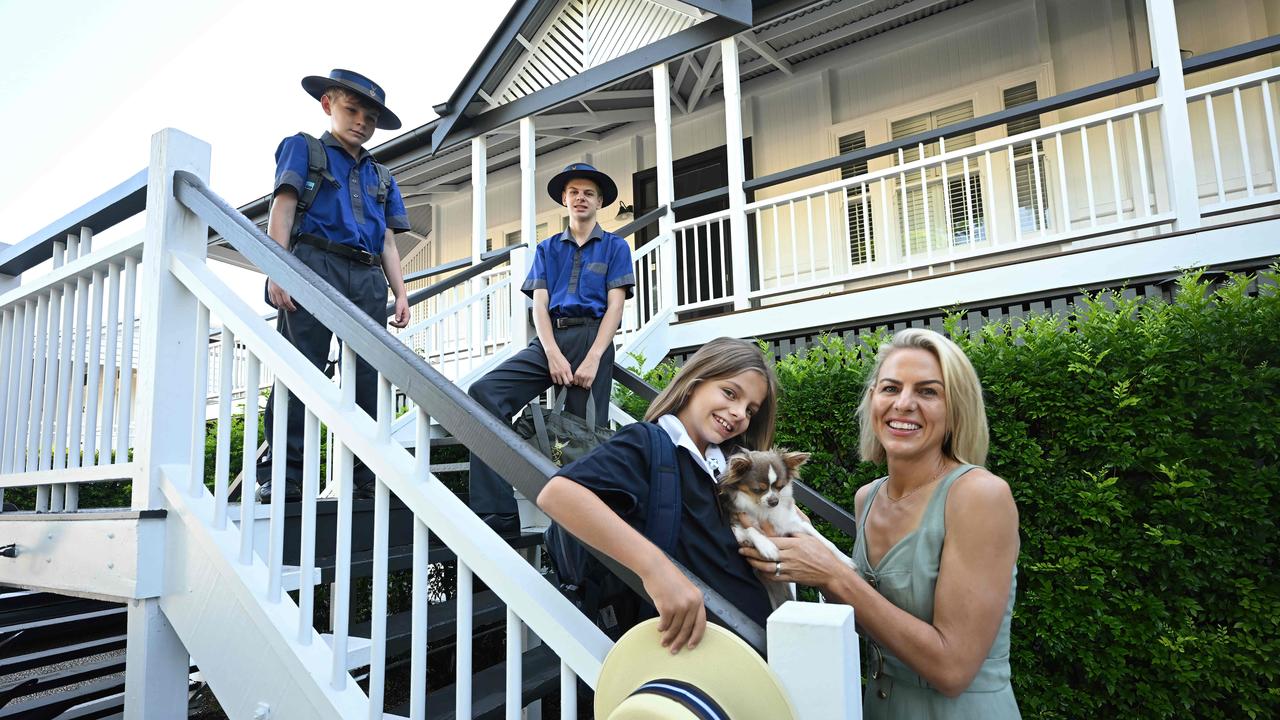Malls landlord Vicinity feels coronavirus impact
Vicinity has trimmed earnings forecasts after a ‘material decline’ in shoppers at key shopping centres this month.

Retail landlord Vicinity Centres, part owner of Melbourne’s landmark Chadstone Shopping Centre, has trimmed earnings guidance for this financial year, blaming the impact of the coronavirus on its luxury precincts.
Vicinity Centres chief executive Grant Kelley said the virus was “having an increasing impact on global travel, trade and consequently near-term economic growth expectations”.
The company has a half stake in Chadstone alongside billionaire John Gandel and also interests in Sydney city malls including the QVB.
“We have seen a material decline in foot traffic at some of our key centres since late January 2020, particularly where there is a high proportion of international visitors, which in turn is impacting sales. As a result, we are forecasting modest reductions in percentage rent, ancillary income and hotel bookings,” he said.
Mr Kelley said based on current trends in Vicinity’s portfolio, as well as assumptions for the remainder of this half, it had cut back expectations.
The retail landlord slashed its fiscal 2020 funds from operations per security guidance to a range of 17.2c to 17.4c, down from 17.6c to 17.8c, as it warned the virus could hit traffic to its best centres.
Mr Kelley said the company was “mindful” of the impact that novel coronavirus was having on retailers. “While global uncertainty continues as to the full impact and duration of novel coronavirus, we are undertaking a range of initiatives to mitigate the impact on our portfolio,” he said.
Vicinity said it was regularly communicating with retailers and will kick off “targeted campaigns” to support visitation at its most affected centres. “We continue to monitor the implications for Vicinity,” he said.
The full year distribution payout ratio is expected to be at the upper end of the target range of 95 per cent to 100 per cent of AFFO, and reflects maintenance capital expenditure and incentives of about $80m to $90m.
Vicinity said retailer administrations affected about one per cent of income and represent 63 of more than 6,900 stores across the portfolio, with 41 of the stores in administration continuing to trade.
Vicinity continues to focus its leasing activities on replacing underperforming retailers with new in-demand national and international brands.
New retailers include international brands Morphe and Lancel, who have opened stores at Chadstone and Emporium Melbourne respectively.
The company delivered an otherwise solid first half in the face of soft retail conditions, with net profit at $242.8m and funds from operations of $337m or 8.95c per security, representing 1.5 per cent comparable growth.
Vicinity Centres made a first half distribution of 7.7c per security, reflecting a payout ratio of 94.9 per cent of adjusted FFO.
The company had portfolio moving annual turnover growth of 3.2 per cent and specialty store MAT of $11,403 per sqm, up 2.9 per cent compared to June 2019. Specialty store and mini majors MAT growth of 3.7 per cent compares to 3.1 per cent growth to June 2019.
Vicinity has offloaded unwanted smaller assets worth $227m but has been buying up in the hot discount sector. It acquired a half interest in Uni Hill Factory Outlets, Victoria, last December.
The company also completed Hotel Chadstone in Melbourne and new precincts at Sydney’s Roselands, and a major stage of retail redevelopment at The Glen in Melbourne.
The company had gearing at 27.3 per cent, within its target range, and had portfolio valuation decline of $81m or 0.5 per cent, with the flagship portfolio gain offset by decline in Western Australia.
Mr Kelley said the company was focused on portfolio enhancement, development completions and active tenant remixing, but also noted the
Vicinity is ramping up its mixed use pipeline of developments.
“We have made significant progress across our future retail and mixed-use development pipeline, with 12 development applications lodged during 2019 and a further 13 development application lodgements or project approvals expected to be sought in 2020,” he said.
Adjusting for divestments, Vicinity’s comparable FFO per security growth was 1.5 per cent. This was underpinned by comparable net property income growth of 2.5 per cent and the on-market securities buyback.
Mr Kelley said Australians had “embraced global shopping events such as Black Friday, which is enhanced by in-store activations”.
Combined November-December 2019 specialty store and mini major sales were up 4 per cent on the prior year.”
Total portfolio MAT growth of 3.2 per cent includes strong results from Chadstone (7.8 per cent) and the DFO portfolio (5.5 per cent). Specialty and mini majors growth of 3.7 per cent was up from 3.1 per cent to June 2019, underpinned by strong growth across leisure (6.8 per cent), retail services (5.1 per cent), food catering (5 per cent) and apparel and footwear (4.3 per cent).
Total leasing spreads for the half averaged -4 per cent, or -2.5 per cent excluding short-term leases
The company is putting much stock in its best malls and there is $700m worth of investment planned for Chadstone, including a new office tower, expansion of the dining terrace and leisure precinct, upgrades to the fresh food precinct, repurposing space for expansion of selected existing luxury retail stores and additional car parking.
Planning is well advanced for the major redevelopment of Chatswood Chase to deliver premium fashion, lifestyle and dining options for Sydney’s north shore.



